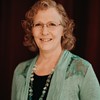- GMHC
-
Getting Started
-
Wondering where to start?
-
 We're your guide. What can this community do for you? Learn more
We're your guide. What can this community do for you? Learn more
-
-
Mobilization
-
Heed the call!
-
 Community Challenges Activate your journey to the field! Read Article
Community Challenges Activate your journey to the field! Read Article -
 Search Jobs Community Job Board Read Article
Search Jobs Community Job Board Read Article
-
-
Resources
-
Learn & Connect
-
 Upcoming Events Learn from the experts in healthcare missions & connect with others. Register Now
Upcoming Events Learn from the experts in healthcare missions & connect with others. Register Now
-
-
Community
-
Connect With the Community
-
 Member Lounge We're all in this together! Join the conversation.
Member Lounge We're all in this together! Join the conversation.
-
- Store
- Log In
Welcome to the MedicalMissions.com Podcast
This is a series of sessions from leading experts in healthcare missions.
A Multi-Faceted Approach to Ebola
 by Kim Kargbo
by Kim Kargbo
- Epidemology
- Health Education
- Non-Medical
- and 8 more...
Ebola has emerged as an extremely complex epidemic that has not only revealed a plethora of underlying problems in the affected countries, but calls for a complex and multi-faceted approach to address it. Adequate and appropriate treatment of Ebola is one aspect of the solution, but a solid public health response is essential to the cessation of this epidemic as well. In addition to the health-related measures that are required, understanding and addressing the cultural factors of the region plays a huge role in stopping the spread of the virus. Additionally, there is the monumental task of spiritual and psychosocial care which is needed, and to which the Church can and must respond. Come and learn more about the various roles available for those who want to engage this crisis from a non-clinical standpoint.
Introduction to the Ebola Virus
- Allied Health
- Baccalaureate Prepared Nurses
- Emergency Medicine
- and 34 more...
The 2014 Ebola outbreak has already killed more than 4000 people, and the end is not clearly in sight. During this session, we will put Ebola into context of other health problems in Africa and then review the presentations, diagnosis, management, and prevention of this devastating illness. We will also explore ways that we can get involved in battling Ebola, whether near to or far from West Africa.
Thought processes of the Next Generation
- Non-Medical
- Other
- Community Development
- and 4 more...
The Next Generation of students, just like each generation before it, is different and is engaging the world in a new way. In order to effectively attract and retain these students, the church will have to adjust as well. Students no longer want to be a part of a church where they sit, listen and give an offering each week—students of this generation want to know where their money is going and to be a part of the movement. They want to engage in the mission of God in a tangible and real way. Because the entire world is available to them more than ever before, they want to be involved both locally and globally.
Ebola Comes to ELWA
- Family Medicine
- Infectious Disease
- Internal Medicine
- and 7 more...
ELWA Hospital is a small SIM mission hospital near Monrovia, Liberia. When did we first hear about the impending threat of Ebola? What did we do? How did we prepare? What happened? Come and hear the story of Ebola coming to ELWA.
Talking with Victims of Sex Trafficking - What We Are Learning
- Public Health
- Abortion
- Community Development
- and 10 more...
This session reports on focus groups conducted with 107 domestic victims of sex trafficking in which they discussed the health problems they experienced during trafficking. In addition, the session examines victims' interactions with various types of healthcare providers. The focus groups revealed that nearly all victims experienced physical and mental health problems while being trafficked, including serious communicable and other diseases, injuries resulting from violence, substance abuse, and reproductive health issues. The session summarizes data about the health problems reported by sex trafficking survivors to present a fuller picture of the health consequences that victims suffer. A majority of survivors sought healthcare at some point during the time they were trafficked. The session reports on the contact victims had with health care providers including hospital emergency wards, urgent care clinics, neighborhood clinics, women's clinics, Planned Parenthood clinics, and general practitioners. Many providers were unaware of the fact that they were treating a trafficking victim, and unaware of the force, fraud, and coercion involved in trafficking. The session discusses common physical and mental health symptoms and other warning signs that can assist medical professionals in recognizing possible trafficking victims. It also makes policy and program recommendations for medical care providers to enhance their roles as identifiers of trafficking victims. These recommendations include suggestions for interviewing possible victims and methods for helping victims obtain broader assistance, including criminal justice assistance where warranted. Other recommendations include mandatory training about trafficking in persons for healthcare providers, mandatory posting of the national trafficking hotline phone number and specialized resources to make available to victims.




